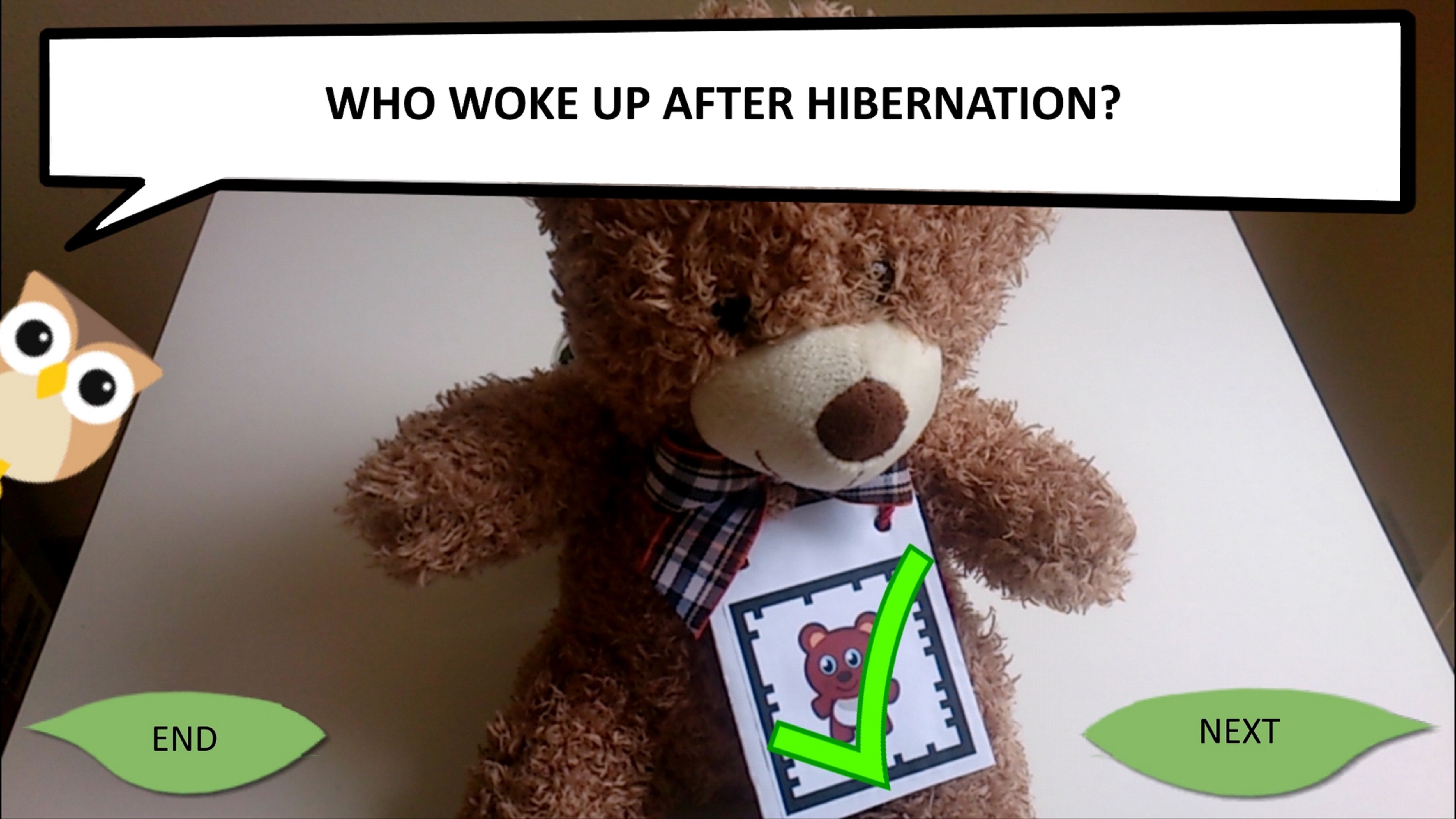
Software for augmented reality learning cosists of two modules - one for geometry and one for basic arithmetic. The second subject covered was Nature and Society, through an adaptable module able to cover different topics in that subject. The pupils looked forward to working on tablets and the teachers were eager to try out the developed lessons. So as to not impact the school’s curriculum with the experiments, the content of the AR-enriched lessons was always based on the curriculum. After collecting the necessary information and designing the modules, development began. Thanks to Ivica and Neven, all doubts and issues encountered during development were quickly resolved. Two AR modules for Mathematics were developed - AR.Math and AR.Geometry - as well as AR.Curious covering Nature and Society topics.

Exercises in triplets contain problems presented in a textual form and group members are assigned one of the three available roles: an author, an editor or a checker role. An author is expected to carefully read the text of the given problem and write a mathematical expression, an editor should solve it, and a checker is expected check the entire solution. After checker submits his/her solution, all group members receive the feedback message.
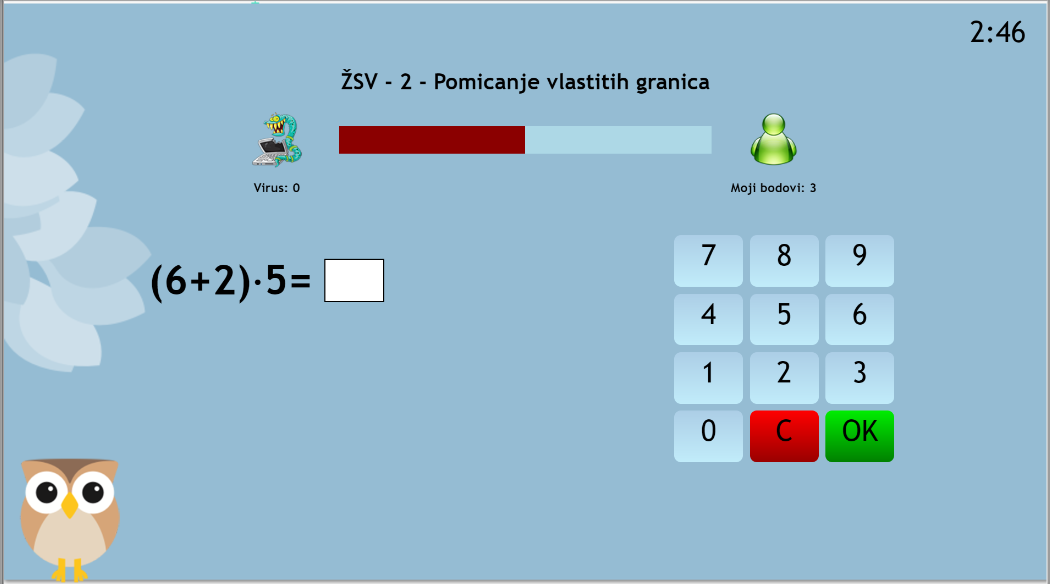
The mathematics „adder game widget” uses gamification naratives. Students are presented with a story of the „evil computer virus that has infected our server and is now spreading to all the tablets. We cannot get rid of it, and it seems that the only way to clean the tablets is that each student plays and wins the game of math knowledge against the virus. And in order to completely expel the virus from the server, all of the students together must solve more math tasks than the virus.
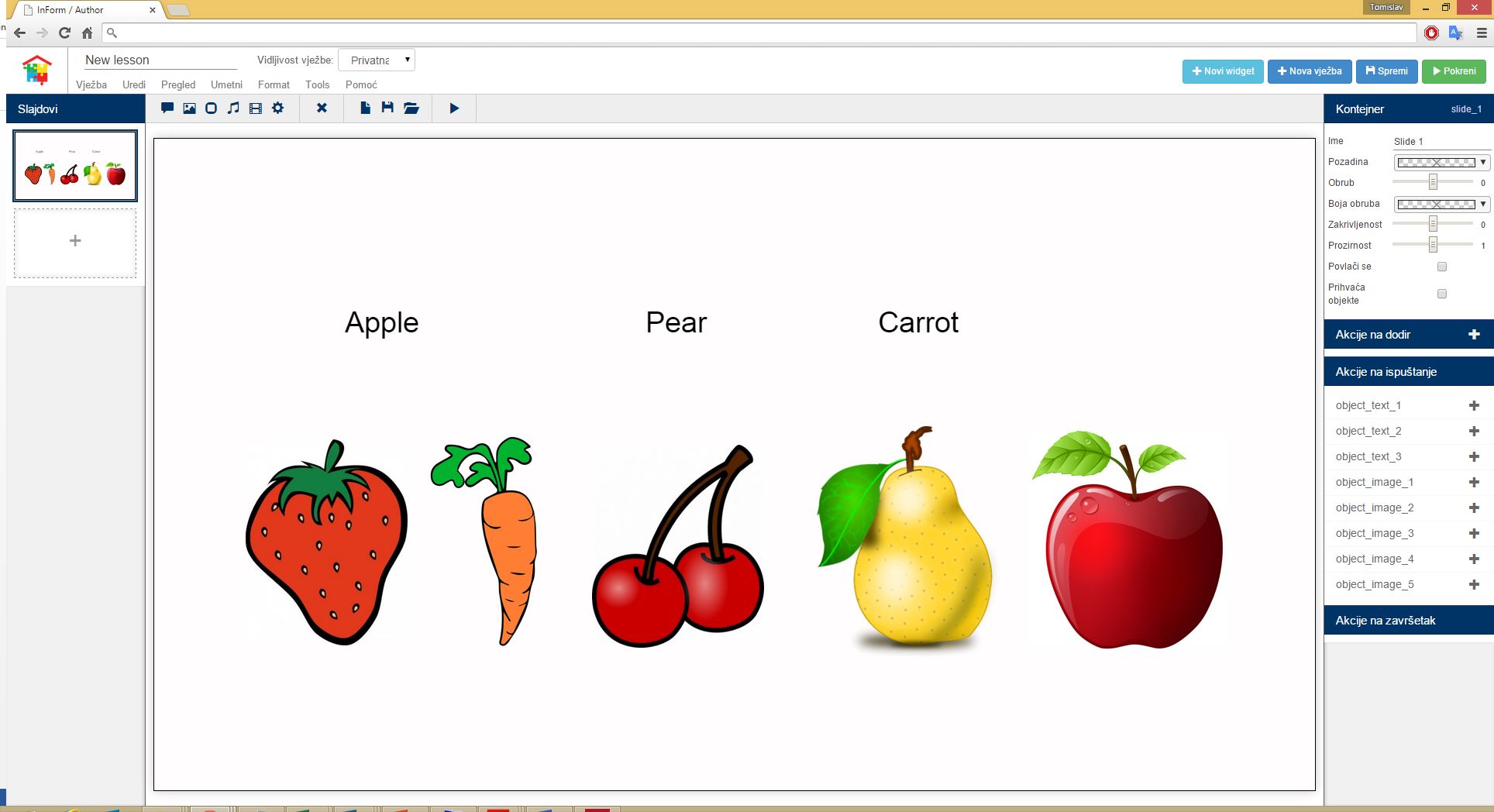
The digital lesson designer [in]Form Author is a web application that allows creation and editing of multimedia-rich interactive teaching lessons, to some extent similar to the presentation slides. The application allows teachers and lesson designers to create simple lessons, questionnaires and games, which can then be run through the [in]Form platform or via any JavaScript-enabled web browser.
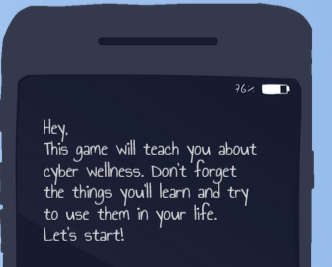
The PoCo application contains interactive cyberwellness lessons in the form of short games. Graphical user interface mimics of real virtual environments: social networking service, chat, e-mail and forum.
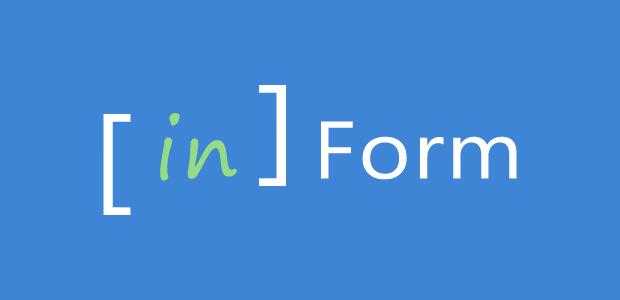
[in]Form is developed to allow pupils studying science to work seamlessly together in a variety of learning contexts.





